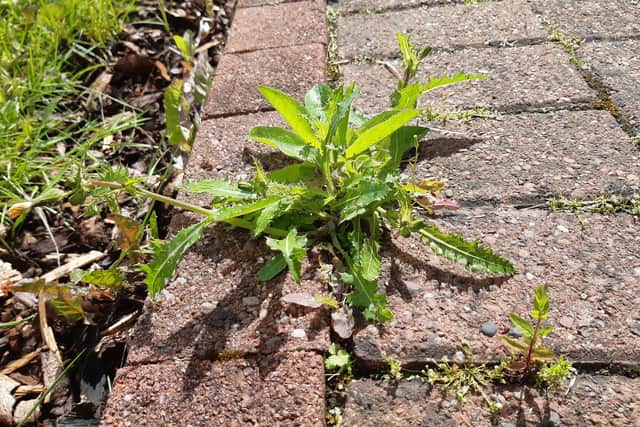Fife Council defends use of weedkiller linked to cancer
and live on Freeview channel 276
The local authority was named as one of of five which accounts for half of Scotland’s use of glyphosate.
The details were revealed following an Freedom of Information (FOI) request by investigative journalism website The Ferret.
Advertisement
Hide AdAdvertisement
Hide AdIt revealed that all Scottish councils are using glyphosate which, it said, was linked to cancer and biodiversity loss.


A total of 40,000 litres of the herbicide are used across the country each year with Fife one of five local authorities responsible for half of that total.
The others are Glasgow, Edinburgh, Aberdeenshire and Aberdeen City.
Glyphosate has been been banned by numerous countries around the world .
Advertisement
Hide AdAdvertisement
Hide AdIn 2015 it was classified as a probable cause of cancer by scientists at the World Health Organisation - although the EU has permitted use of glyphosate until at least this year, stating there was no evidence to link it to cancer in humans,
This isn’t the first time the council has faced calls to phase it out.
In 2019, Lib Dem Councillor, Jonny Tepp tried to have its use halted as a precaution and to explore alternatives.
Fife Council stressed it was piloting alternatives to chemicals when it came to clearing weeds and cutting grass edges.
Advertisement
Hide AdAdvertisement
Hide AdScott McLelland, service manager, said: "Extensive research has been carried out on behalf of industry and consumers and the EU Commission has ruled that glyphosate is safe to use.
However, any reduction we can make in the use of chemical weedkillers will benefit the environment and we are now using less weed killer, not because it is unsafe to do so, but because there are other ways of controlling weed growth.
“We've developed an integrated weed management approach that includes alternative methods of weed control such as the use of mulches in shrub beds and a greater use of manual methods to controlling grass edges and weeds.”He added: "We are piloting an approach which involves manually clearing the weeds as an alternative to using chemicals and we'll evaluate the impacts and benefits as the pilot progresses."
